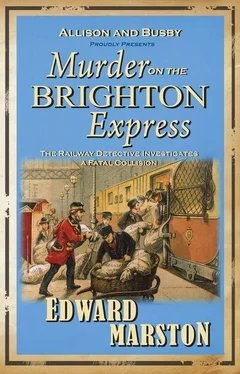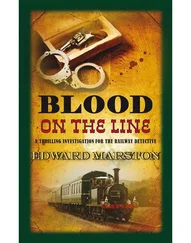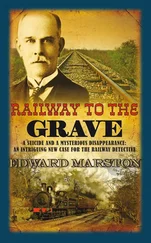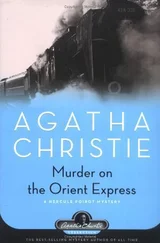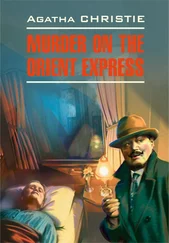Edward Marston - Murder on the Brighton express
Здесь есть возможность читать онлайн «Edward Marston - Murder on the Brighton express» весь текст электронной книги совершенно бесплатно (целиком полную версию без сокращений). В некоторых случаях можно слушать аудио, скачать через торрент в формате fb2 и присутствует краткое содержание. Жанр: Классический детектив, на английском языке. Описание произведения, (предисловие) а так же отзывы посетителей доступны на портале библиотеки ЛибКат.
- Название:Murder on the Brighton express
- Автор:
- Жанр:
- Год:неизвестен
- ISBN:нет данных
- Рейтинг книги:4 / 5. Голосов: 1
-
Избранное:Добавить в избранное
- Отзывы:
-
Ваша оценка:
- 80
- 1
- 2
- 3
- 4
- 5
Murder on the Brighton express: краткое содержание, описание и аннотация
Предлагаем к чтению аннотацию, описание, краткое содержание или предисловие (зависит от того, что написал сам автор книги «Murder on the Brighton express»). Если вы не нашли необходимую информацию о книге — напишите в комментариях, мы постараемся отыскать её.
Murder on the Brighton express — читать онлайн бесплатно полную книгу (весь текст) целиком
Ниже представлен текст книги, разбитый по страницам. Система сохранения места последней прочитанной страницы, позволяет с удобством читать онлайн бесплатно книгу «Murder on the Brighton express», без необходимости каждый раз заново искать на чём Вы остановились. Поставьте закладку, и сможете в любой момент перейти на страницу, на которой закончили чтение.
Интервал:
Закладка:
Heddle was on the verge of tears. Unable to cope with the news, he quaked and gibbered. It was bad enough to lose a dear friend in an accident. The thought that someone had deliberately set out to kill and maim innocent people was utterly appalling. Engines, carriages and rolling stock had also been destroyed. Heddle was rocked. As he tried to take in the sheer magnitude of the crime, his head pounded. Horror eventually gave way to a deep bitterness.
'That was no blessing,' he said, curling his lip.
'What do you mean?'
'There was this clergyman on the platform at London Bridge. Before we set off, he told us he wanted to bless the train. He said that he always did that when catching the express.'
'That must have been the Reverend Follis,' decided Colbeck.
'I don't know what his name was and I don't want to know. He was a holy menace. That wasn't a blessing he gave us,' said Heddle with rancour. 'If you ask me, it was a bleeding curse.'
The Reverend Ezra Follis was a regular visitor to the county hospital in Brighton. Whenever one of his parishioners spent time there, he made a point of calling on them to check on their condition and to bring them some cheer. What made his visit different on this occasion was that he looked as if he himself should have been detained in the hospital as a patient. His clothing hid most of his cuts and bruises but his hat failed to conceal the bandaging around his skull, and his face still bore some livid scars. A blow to the hip received during the crash had left him with a pronounced limp. He refused to use a walking stick, however, and, in spite of his aches and pains, he was as affable as ever.
He arrived at the main entrance as one of the patients was about to leave. Giles Thornhill was in a frosty mood. One arm in a sling and with a black eye as the central feature in a face that was liberally grazed, he was moving very slowly towards a waiting cab, each step a physical effort. Standing beside him was a member of the local constabulary.
'Good morning, Mr Thornhill,' said Follis, chirpily. 'I'm glad to see that you're well enough to be discharged.'
'I prefer to rest in my own bed,' said Thornhill. 'There's no privacy in the hospital. I was made to share a ward with the most unspeakable people. It was so noisy that I didn't get a wink of sleep.'
'Then you're in a position to institute some improvements. As a Member of Parliament, you have a lot of influence here. You could put pressure on the Board of Trustees to provide additional funds for the hospital so that they can build an annexe with single rooms. While patients are recovering, they need peace and quiet.'
'I have other things to worry about at the moment.'
There was a muted resentment in his voice. While Thornhill had sustained a broken arm and picked up some ugly gashes in the crash, Follis had been relatively unscathed. The politician had been knocked unconscious. The first thing he saw when he came to was the face of the little clergyman, bending over him and muttering words of comfort in his ear. It had irritated him. In intense pain and a degree of panic, all that Thornhill had wanted was to be taken to hospital instead of being bothered by Ezra Follis.
When he reached the cab, however, he felt obliged to turn back.
'How are your own injuries?' he asked with formal politeness.
'Oh,' replied Follis, displaying his bandaged hands. 'My head and my hands took the punishment so I came off rather lightly. God moves in mysterious ways, Mr Thornhill. I believe that I was spared in order to help others. Divine intervention was at work.'
Thornhill grunted. 'I saw no sign of it,' he said.
'You survived. Isn't that a reason to be grateful to the Almighty?'
'I'd have been more grateful if He'd kept the train on the rails.'
Helped by the policeman, Thornhill got into the cab. Both men were then driven away. Follis waved them off before going into the hospital. One of the nurses directed him to a ward where some of the other survivors were being kept. Sweeping off his broad-brimmed hat, he went into the room and looked along the beds. The patients were subdued and two of them, with appalling injuries, were comatose. Of the other six, most had splints on their arms or legs. One man, in the first bed, had broken both lower limbs. The clergyman recognised the red face and mutton-chop whiskers.
'Good day to you, my friend,' he said, pleasantly. 'My name is Ezra Follis, Rector of St Dunstan's. We sat opposite each other on the train – at least, we did until our seating positions were suddenly rearranged by the crash. To whom am I speaking?'
'Terence Giddens,' said the other, grasping him by the wrist. 'Do you know what's going on in here?'
'The hospital is doing its best to cope with victims of the worst train crash in years, that's what is going on, my good sir. Everyone is working at full stretch.'
'They won't tell me anything, Mr Follis.'
'What is it that you'd like to know?'
'I'm not even sure if everyone in our carriage survived,' said Giddens. 'All I've gathered is that six people were killed.'
'Seven,' corrected Follis. 'A young lady died from her wounds shortly after reaching the hospital. I was here when it happened.'
Giddens blanched. 'It was not the young lady from our carriage, I trust?'
'No, no, she was badly injured but, as I understand it, her life is not in danger. None of our other travelling companions met their deaths, Mr Giddens. Most are in here or being looked after elsewhere. In fact,' he recalled, 'Mr Thornhill, one of Brighton's two Members of Parliament, felt well enough to go home.'
'That's what I must do.'
'You're hardly in a condition for release,' said Follis, detaching the man's hand from his wrist and glancing at the broken legs. 'You need the kind of care that only a trained medical staff can give.'
'I can't stay here,' insisted Giddens.
'You have no choice.'
'There must be some way to get me back to London.'
'Well, it certainly won't be by train. The line is still well and truly blocked. And a coach would turn the journey into an ordeal for you as it bounced and bucked its way over the roads. I'm sorry, Mr Giddens, you'll just have to resign yourself to staying here.'
'Can't you persuade them to discharge me?'
'The hospital has a good reputation. You'll be safe here.'
'But I need to be in London as a matter of urgency.'
'Why is that, may I ask?'
'I'm the manager of a large bank,' said Giddens, pompously. 'I have important decisions to make. I can't instruct my clerks from fifty miles away.'
'There's an excellent postal service between here and the capital,' argued Follis. 'Besides, you can't possibly return to work when you're unable to walk. I know that it's difficult, Mr Giddens, but you have to accept the situation as it is. You'll be here in Brighton for a little while yet.'
Terence Giddens bit back an expletive and turned his head away. Trapped and helpless, he frothed with impotent rage. The pain in both legs suddenly became a searing agony.
Superintendent Edward Tallis was seated at his desk in Scotland Yard, scrutinising a report. In response to a knock on his door, he barked a command and Robert Colbeck entered.
'Good afternoon, sir,' he said.
'Ah!' said Tallis, looking up. 'I was wondering when you would deign to appear, Inspector. I thought you had perhaps forgotten your way here.'
'I was investigating the train crash, Superintendent, but I found time to write an interim report for you and made sure that it was delivered early this morning.'
'It's right here in front of me. Your handwriting is graceful as ever but that's the only compliment I feel able to make. The report is full of unsubstantiated guesswork. What it lacks are hard facts.'
'I'm here to present those to you now, sir.'
Читать дальшеИнтервал:
Закладка:
Похожие книги на «Murder on the Brighton express»
Представляем Вашему вниманию похожие книги на «Murder on the Brighton express» списком для выбора. Мы отобрали схожую по названию и смыслу литературу в надежде предоставить читателям больше вариантов отыскать новые, интересные, ещё непрочитанные произведения.
Обсуждение, отзывы о книге «Murder on the Brighton express» и просто собственные мнения читателей. Оставьте ваши комментарии, напишите, что Вы думаете о произведении, его смысле или главных героях. Укажите что конкретно понравилось, а что нет, и почему Вы так считаете.
